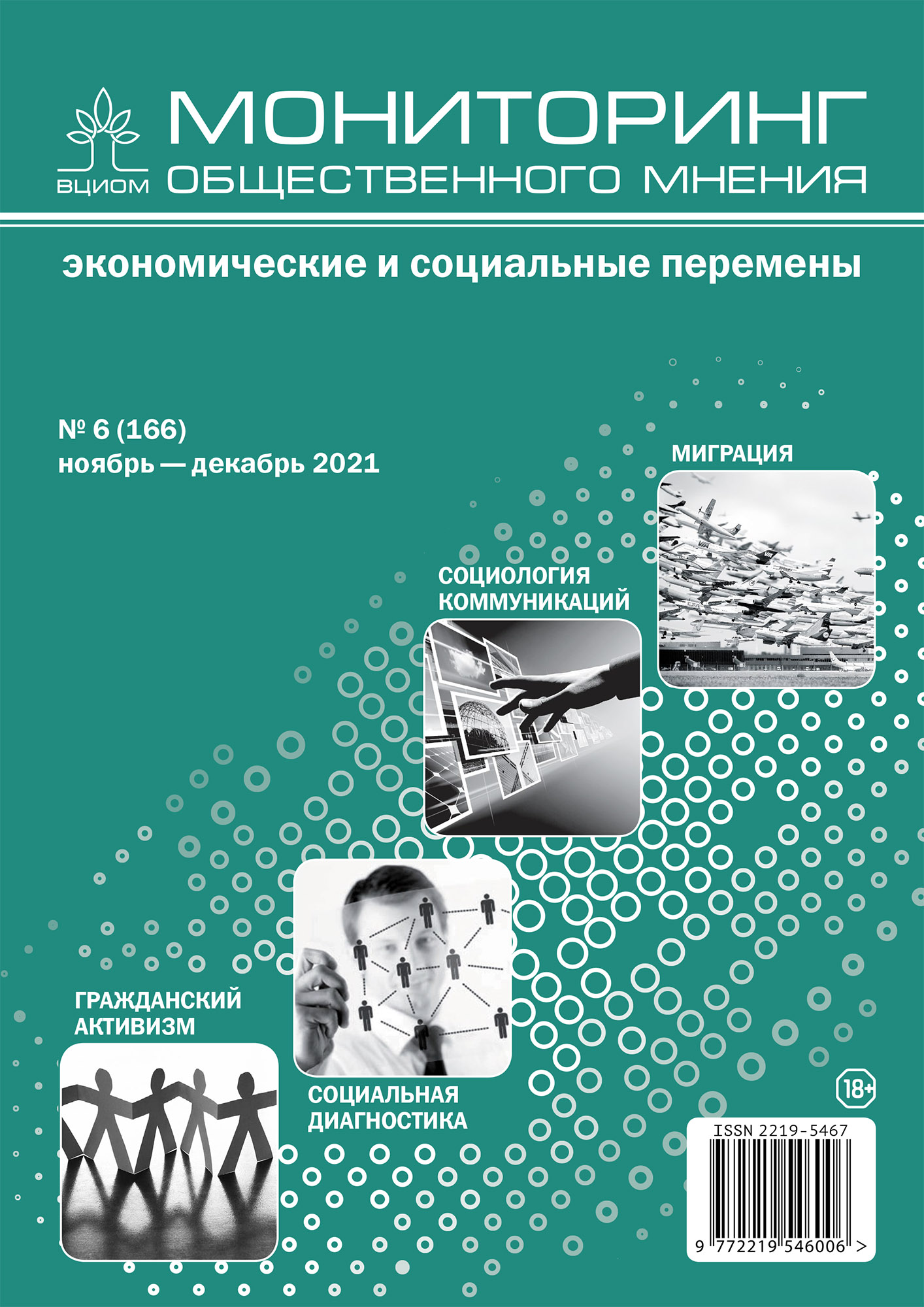Socio-Demographic Profiles, Personality Traits, Values, and Attitudes of COVID-Skeptics in Russia
НАСТОЯЩИЙ МАТЕРИАЛ (ИНФОРМАЦИЯ) ПРОИЗВЕДЕН, РАСПРОСТРАНЕН И (ИЛИ) НАПРАВЛЕН ИНОСТРАННЫМ АГЕНТОМ ЗАВАДСКОЙ МАРГАРИТОЙ АНДРЕЕВНОЙ ЛИБО КАСАЕТСЯ ДЕЯТЕЛЬНОСТИ ИНОСТРАННОГО АГЕНТА ЗАВАДСКОЙ МАРГАРИТЫ АНДРЕЕВНЫ
DOI:
https://doi.org/10.14515/monitoring.2021.6.1938Keywords:
COVID-19, coronavirus skepticism, conspiracy theories, Schwartz’s basic values, “Big Five” personality traits, institutional trustAbstract
In this study, we explore how various socio-demographic attributes, personality traits, values, and attitudes of COVID-19 skeptics differ from those of the rest of the Russian population. We use data collected during the first round of the international online panel survey “Values in Crisis” (in short ViC; fieldwork mid-June 2020, N = 1527).
We operationalize COVID-skepticism as support for the idea that the COVID-19 pandemic is a hoax and that all the lockdown measures are a hysterical overreaction, indicated by 38% of our respondents. Basic descriptive tests show that male, middle-aged, and less educated respondents are more likely to express skeptical views of the pandemic. The direct experience of the disease, quite predictably, decreases the likelihood of being coronaskeptic, whereas encountering negative economic consequences of the pandemic has the reverse effect. Interestingly, no systematic differences between skeptics and non-skeptics in the “Big-5” personality traits are visible in our data. At the same time, the coronaskeptic group has consistently lower scores on Schwarz’s conservation values and higher scores on openness to change values. COVID-19 skeptics also tend to oppose globalization, international cooperation, and migration. They are slightly less trusting of other people and traditional media, less proud of being Russian citizens, but do not differ from non-skeptics in terms of religiosity. Perhaps the most striking finding is that this group demonstrates much lower levels of confidence in government, health system, and national institutions, and also evaluates the government’s performance in handling the COVID-19 crisis much more critically.
Acknowledgements. The article was prepared in the framework of a research grant funded by the Ministry of Science and Higher Education of the Russian Federation (grant ID: 075-15-2020-928).
Downloads
Published
How to Cite
Issue
Section
License
Copyright (c) 2021 Monitoring of Public Opinion: Economic and Social Changes Journal (Public Opinion Monitoring) ISSN 2219-5467

This work is licensed under a Creative Commons Attribution-NonCommercial-ShareAlike 4.0 International License.






